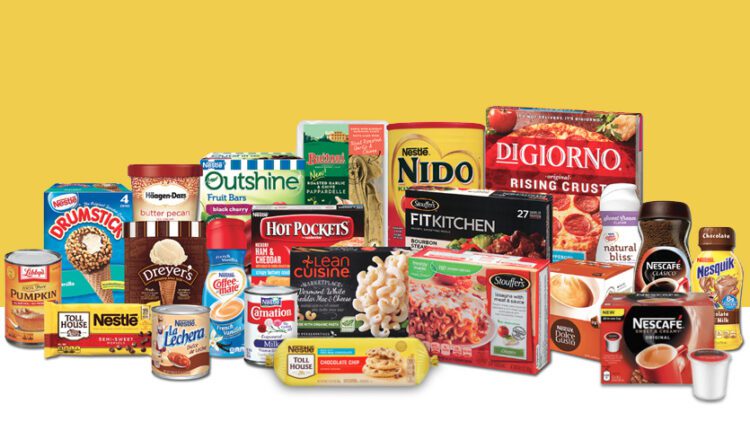Global food giant, Nestle SA, has admitted in a company document that over 60% of its food products and drinks are not healthy.
Nestle is well known globally for a tall list of household brands such as Milo, KitKat, Magi, Nescafe, Nespresso, and many others.
Although stopping short of mentioning specific Nestle products deemed unhealthy, the Swiss food giant acknowledged some of their products do not make recognised health benchmarks.
The Financial Times has reported sighting an internal Nestle presentation shared among top executives which said: “only 37 per cent of Nestlé’s food and beverages by revenues, excluding products such as pet food and specialised medical nutrition, achieve a rating above 3.5 under Australia’s health star rating system.”
The reports said the company described the 3.5-star threshold as a “recognised definition of health”.
It explained the scoring system is the same used in research by international groups, like Access to Nutrition Foundation, which rated food products up to 5 stars for quality.
“Within its overall food and drink portfolio, about 70 per cent of Nestle’s food products failed to meet that threshold, the presentation said, along with 96 per cent of beverages — excluding pure coffee — and 99 per cent of Nestlé’s confectionery and ice cream portfolio,” the FT report noted.
The undisclosed list of “unhealthy” products did not include water and dairy products, which are said to have scored better, with 82 per cent of its range of water and 60 per cent of dairy meeting the threshold.
“We have made significant improvements to our products . . . [but] our portfolio still underperforms against external definitions of health in a landscape where regulatory pressure and consumer demands are skyrocketing,” the presentation disclosed.
The product ranges captured in the data, however, did not include baby formula, pet food, coffee and Nestle’s health science division, which specialises in foods for people with specific medical conditions.
According to Financial Times analysis, “the data accounts for about half of Nestle’s SFr92.6bn (£72.7bn) total annual revenues.
Processed food manufacturers have come under intense pressure from healthy eating advocates, who seek to reverse increasing trends of obesity and associated health conditions.
In his reaction chief executive of Nestle, Mark Schneider, acknowledged consumers want a healthier diet but rejected claims that “processed” foods including those made by his outfit and others tend to be unhealthy.
“We are looking at our entire portfolio across the different phases of people’s lives to ensure our products are helping meet their nutritional needs and supporting a balanced diet,” he said.
Schneider explained Nestle, for example, has reduced the sugar and sodium content in its products significantly in the past two decades, about 14-15 per cent in the past 7 years alone.
“In recent years, we have launched thousands of products for kids and families that meet external nutrition yardsticks,” he added.
The Nestle chief executive noted, “we have also distributed billions of micronutrient doses via our affordable and nutritious products. As we consider our future nutrition strategy, we are first focusing on assessing the part of our food and beverage portfolio that can be measured against external nutrition profiling systems”.
Systems like the Health Star Rating and Nutri-Score are useful in this regard and enable consumers to make informed choices.
- Major Ghana Cocoa Region 81% Infected with Bean Disease - July 22, 2024
- Ghana to Delay More Cocoa Deliveries as Supply Crisis Worsens - June 12, 2024
- Cocoa Production Helping Mitigate Climate Change Impact - June 10, 2024
